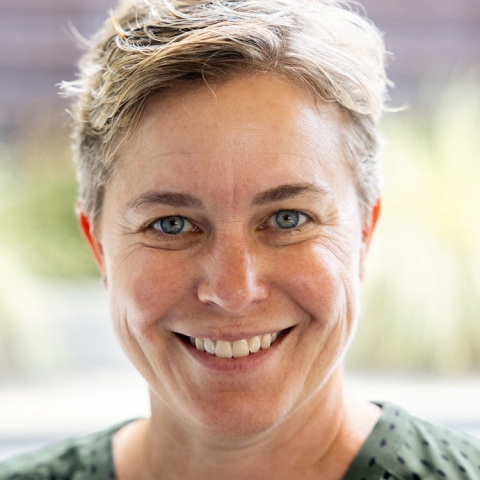
Adverse and potentially traumatic experiences are too common among school-age children, leaving teachers, administrators and staff struggling to help students. In response to the growing need during and following the pandemic, UC Santa Barbara researchers have formed a university-community partnership with local educators and the James S. Bower Foundation to develop practices that promote resilience and thriving.
“COVID shutdowns are behind us, but the psychological impacts remain,” said Jill Sharkey, a professor of school psychology in UCSB’s Gevirtz Graduate School of Education (GGSE). “Students are displaying symptoms of traumatic stress at unprecedented levels.”
Two out of three school-age youth experience a traumatic event — such as abuse, violence, neglect, serious accident, natural disaster or loss of a loved one — before age 16, found a study in the Archives of General Psychiatry. Within schools, 25% of high school students have been in at least one physical fight, 20% have been bullied and 17% have experienced cyberbullying, according to statistics from the Substance Abuse and Mental Health Services Administration. These experiences may result in child traumatic stress that leaves some students feeling anxious and depressed, acting aggressively or thinking about self-harm.
Sharkey and fellow UCSB professors Erika Felix, Andrew Fedders and Tim Dewar, and GGSE graduate students Alice Mullin, Karina Aragon and Desirae Maier, have spent the last three years studying how to build trauma-informed practices (TIPS) to equip educators and future teachers with the training and skills to help students who are having adverse experiences. This innovative work addresses a pervasive need to develop and test interventions to support educators in addressing student mental health.
“Teachers are on the frontline of supporting students but, as the pandemic revealed, are also affected by the same stressors,” said Felix, a professor of clinical psychology. “Teachers are juggling a lot, and part of our TIPS program is helping school administrators know how to support their teachers effectively, so that the teachers can be the resources their students need.”
UCSB’s partnership with the Bower Foundation, its Teacher Education Program, and Santa Barbara Unified, Goleta Union and Hope school districts, created at the start of the COVID-19 pandemic, provided the personnel resources, expertise, research and funding to build capacity for TIPS for teachers-in-training and participating school districts. UCSB researchers teamed with advisory committees, with teacher trainers and local schools to design and implement a needs assessment, professional development curriculum and pilot implementation study to support educators in TIPS.
“It is well-established by research that job-embedded, professional learning opportunities with colleagues leads to improved teaching and learning. It is also well-established that connecting with others improves one’s mental health. By having teachers learn together they are better able to help their students learn together,” said Dewar, a teaching professor.
“Students in our Teacher Education Program have expressed that trainings in trauma-informed practices have helped to prepare them to enter the teaching profession through gaining a deeper understanding of potential signs of trauma, and how to best support our future students who are experiencing both chronic and acute traumatic events,” said Ann Bumby, associate director of the UCSB Teacher Education Program. “Teachers are often first responders during traumatic events. The TIPs training is empowering our future teachers with the knowledge of how to care for themselves and their students.”
Following the training, teachers, administrators and pre-service teacher candidates demonstrated a greater knowledge about trauma, how to recognize signs and symptoms of traumatic stress, and reported more confidence in their ability to support students who experience trauma. They also learned specific skills related to psychological first aid, how to support students during a crisis such as a lockdown and how to respond to grief and anticipatory grief, such as in the case of terminal illness.
A next step, the team said, is to provide professional development to existing school psychologists and other mental health professionals already in the schools, who can then train administrators and teachers to support students and educators who directly experience trauma or are suffering from secondary traumatic stress. They also plan to make the TIPS curriculum permanent in their teacher education program, support other UC teacher education programs with this curriculum, and advocate for state standards to better address TIPS in teaching credential requirements.
“It has been very rewarding to provide educators with discrete skills for building trauma-informed practices in their classrooms and schools,” said Sharkey. “This is fundamental to the wellbeing and academic success of our students.”
Maria Zate
Director of Communications
Gevirtz Graduate School of Education
mzate@ucsb.edu




